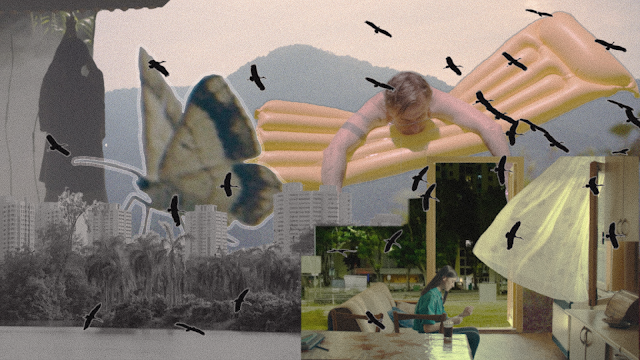Presented by the Singapore Art Museum in conjunction with the ongoing exhibition, The Gift, curated by Dr. June Yap, Still Somehow, It’s Illusions We Recall is a film programme that draws upon the exhibition’s themes of affinities and entanglements to explore notions of (altered) intimacies and existential isolations as it pertains to the current global pandemic situation. Programmed by producer, organiser, and curator Jeremy Chua, Still Somehow, It’s Illusions We Recall includes a feature section with the Singapore premiere of four feature titles and a selection of artist videos by Singaporean artists Elysa Wendi, Min-Wei Ting, and Robert Zhao.
Here, SINdie catches up with Jeremy to explore programming in the pandemic era and the surreality of our contemporary condition.
What inspired Still Somehow, It’s Illusions We Recall?
The film programme is inspired by a desire to make sense of an unfulfilled reality in a time of upheaval. But what if Covid presented a chance for us to relook at everything we think we know of the world and consider that none of that can be true anymore? Throughout cinema history, the medium has always inexplicably captured humanity's subconscious. I see cinema as a dreamed space to overcome our existential crisis in the physical world.
It's interesting to note the use of 'illusions' in the title—what are these illusions you reference?
The big idea is to come face to face with your Covid existentialism - whatever that may be. Imagine a film screening to be like an intervention. To re-examine what is real and what is unreal in our reality. So this collection of feature and artist films are not meant to be an academic or topical discourse, but rather one to propose an awakening.
And likewise, do you see the conjuration of these illusions to be a collective process?
As long as we are looking away from the flame, we cast our own shadows on the wall.
The films you have selected draw into view the rich and varied inner lives of their characters and speak to a certain sensual reality of existence; what was your programming process like?
The research process was based on echoing the themes in the exhibition of The Gift. I was looking for contemporary works by directors who were trying to express or convey the invisible, the inexplicable, the incidental, the intangible aspects of life. So it was not just about watching as many films as I could, but also reading about the director's process and intention to find a dialogue from one film to the next.
Was there any difference between how you programmed the feature titles and the shorter artist films?
For the artist films, I was interested to highlight work made by local artists in the last 2 years that reflected on the ephemeral existence of a remembered world. Elysa Wendi's If Forest Remembered dwells in the quest of attempting to reverse a vanishing point - of recollecting a long forgotten memory of her first solo dance juxtaposed with the slow extinction of a species of rhino. Min Wei Ting's If For Nothing Else Than For Sunday explores parallel spatial dramaturgies of Little India through a walkabout of the neighbourhood at two distinct times. And we show a capsule of Robert Zhao's recent shorts investigating the unseen impact of urbanisation on the fragile lives of birds in migration.
I am particularly taken by the selection of The Works and Days (of Tayoko Shiojiri in the Shiotani Basin), the eight hour runtime of which mirrors the structure of a workday in an agrarian community; what drew you to this title?
To me, The Works and Days is a cinematic marvel. I couldn't stop thinking of the film after I saw it. The scenes of comings and goings, ins and outs, ups and downs of life in the Japanese countryside are so vivid and real, it's hard to imagine the film as a work of fiction. It appears quite minimal but I feel it is very complex in it's arrangement. The composition of nature, of the passing of time, of people and the work they do to matter, and ultimately, the impermanence of it all. It's a touching reflection on existence. It requires some patience and commitment but whatever you give comes back in multiple folds.
Were there moments from the films that have stuck with you, that you recall over and over?
Definitely. Oftentimes in the mundane. In the music of nature. In the passing of time. Most of all, in the quiet moments where the characters reveal their true selves.
Interview by Alfonse Chiu
Still Somehow, It’s Illusions We Recall runs from 2 October to 4 November 2021, with on-site screenings in the Ngee Ann Kongsi Auditorium and Level 5 Theatrette at National Gallery Singapore. Tickets and further information are available at this link.
